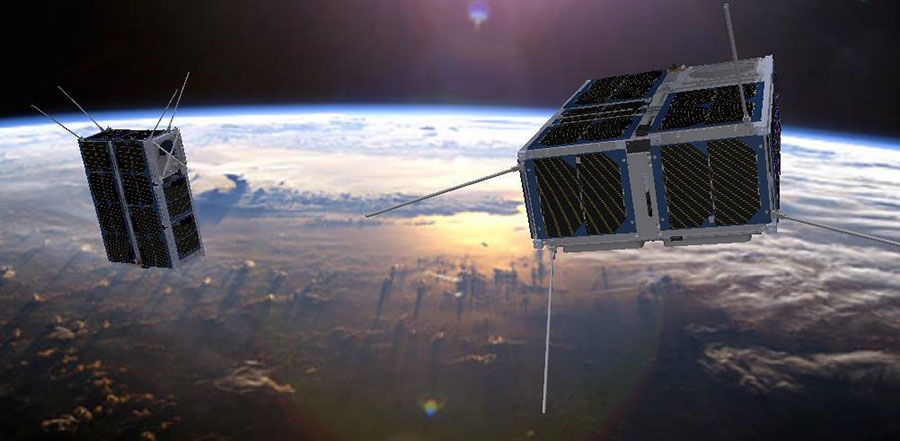The EU space programmes Copernicus and Galileo are making rapid progress, supporting EU efforts for disaster relief, connectivity as well as security and defence. With the second largest budget in the world, the EU is an autonomous but also cooperative space power.
Did you know that Europe is a space power in the making? That it has the second largest budget for space in the world ? That is runs two ambitious satellite based projects – Galileo and Copernicus – delivering key autonomous services to Europe and its partners such as fast and precision satellite imagery, navigation assistance or independent encrypted communication channels ? Against this background, European space leaders are gathered in Brussels for the 10th Conference on Space. In her opening speech, EU High Representative for Foreign and Security Policy Federica Mogherini, outlined the impressive progress Europe has made in space and its relevance for EU security and defence.
Since last January, the EU space programmes Copernicus and Galileo have made impressive progress. Twenty-two Galileo satellites have already been launched – four last year, and four more are to come this year, EU High Representative Mogherini noted at the conference, highlighting how the autonomous European space activities are not a luxury, but critical to European and global security. “Images from space have helped us intervene in the aftermath of natural disasters, detect oil spills in the ocean, and observe the movements of smugglers of human beings… Not only can our smart phones connect to Europe’s Global Navigation System, we finally have a European encrypted navigation service, the Galileo Public Regulated Service. This service is much more resilient to any kind of external interference, and it can provide top-class navigation services to our governments, to our civil protection units, to our search and rescue operations…
 However, Europe is developing its space capacities not in isolation but in a cooperative manner. “We must also conclude our negotiations with partners such as the United States or Norway, who are also keen to access Galileo’s services. Galileo shows the kind of space power we, the Europeans, can be. Innovative, autonomous and cooperative..”.
However, Europe is developing its space capacities not in isolation but in a cooperative manner. “We must also conclude our negotiations with partners such as the United States or Norway, who are also keen to access Galileo’s services. Galileo shows the kind of space power we, the Europeans, can be. Innovative, autonomous and cooperative..”.
EU partners have already benefitted from the new European facilities. HR Mogherini explained the example of the Caribbean where the EU had mobilized its Copernicus imagery system in support of all the people in need following Hurricane Irma. “Copernicus has probably the best rapid mapping system in the world. This means that in a matter of hours, we could produce accurate maps to assess the damage and, most importantly, to plan for the rescue operations. We did this… for our friends in Haiti and the Dominican Republic, in Florida. We did it free of charge, because we see it as our duty and responsibility as a responsible global power to help our friends in the moment of need.”
Mogherini also referred to the crucial importance of progressing with autonomous European space technology for the EU’s rapidly emerging security and defence policies. “Galileo and Copernicus contribute to making us a global security provider. And I think we need to factor this awareness into our work and thinking much more especially considering the major steps forward we have made in the sector of European defence over the last year. They contribute to a strong European foreign policy, and they help us take better and swift decisions… We need our own Space Surveillance and Tracking systems, because we cannot simply rely only on US data.”
“Our technology and expertise make us a heavyweight on global space markets. Our citizens and partners see us as a global point of reference and security provider. And we will have to keep investing, and investing better – if we want to be the autonomous and cooperative space power we need to be for our citizens, but also that the world needs us to be.”



